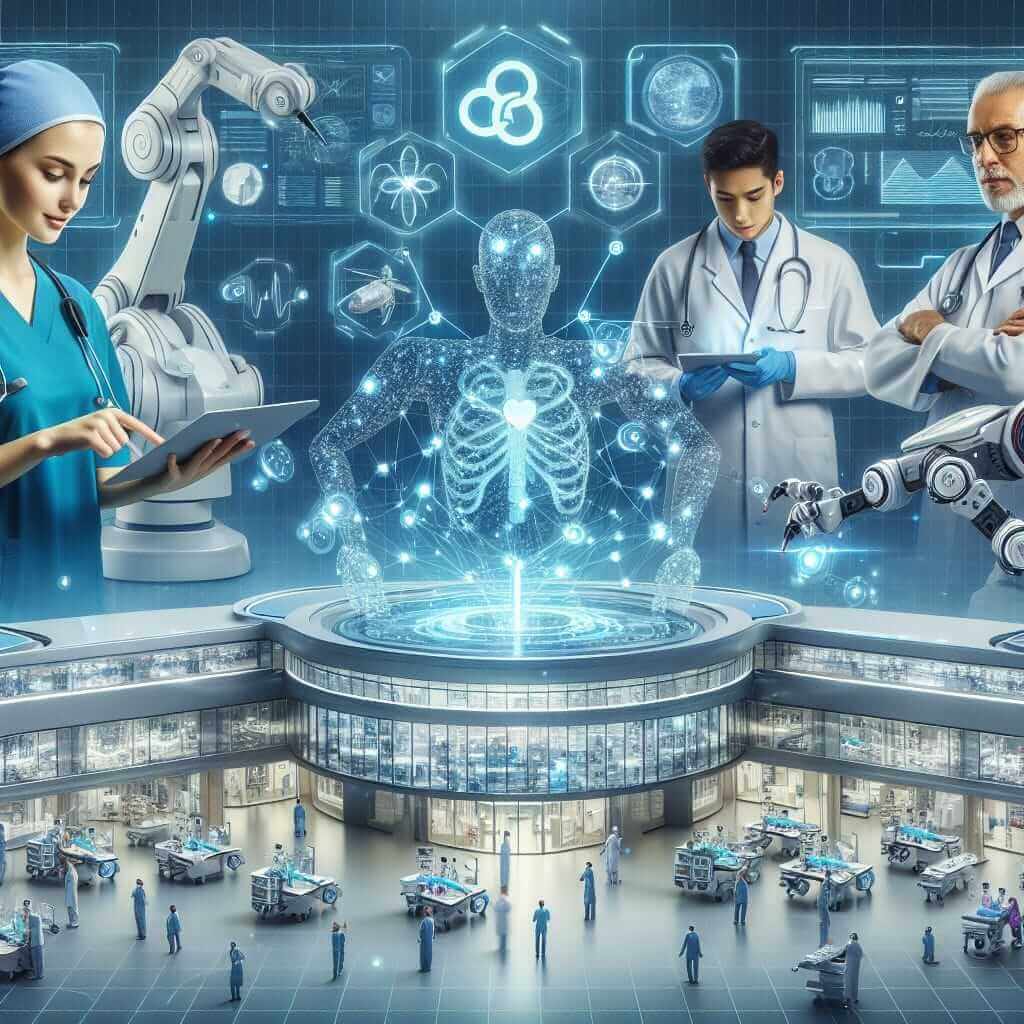The intersection of technology and healthcare is a hot topic in today’s world. It’s no surprise, then, that “The impact of technological innovation on healthcare delivery” is a recurring theme in IELTS Writing Task 2. This comprehensive guide delves into this crucial topic, equipping you with the knowledge and skills to craft a band-8-worthy essay.
This theme frequently surfaces in IELTS, often under the umbrella of “healthcare,” “technology,” or “social change.” Given the rapid advancements in medical technology and their profound implications for global health, it’s highly likely that variations of this topic will continue to appear in future IELTS exams.
Here are some potential IELTS Writing Task 2 questions related to this theme:
- To what extent do you agree or disagree that technological advancements have brought more benefits than drawbacks to healthcare delivery?
- Some people argue that the high costs associated with medical technology are preventing many people from accessing quality healthcare. Do the advantages of advanced medical technology outweigh this drawback?
- Discuss the impact of telemedicine and artificial intelligence on the future of healthcare delivery. To what extent do you think these innovations will change the patient experience?
Sample Essay: Analyzing the Impact of Technological Innovations in Healthcare
Let’s focus on the first question to illustrate how to develop a strong essay response:
To what extent do you agree or disagree that technological advancements have brought more benefits than drawbacks to healthcare delivery?
Analysis
This question asks for your opinion on a complex issue. You need to:
- Take a stance: Clearly state whether you believe technological advancements have primarily brought benefits or drawbacks to healthcare.
- Provide balanced arguments: Discuss both the advantages and disadvantages of technology in healthcare, even if you favor one side.
- Support your arguments: Use relevant examples and evidence to back up your claims.
Model Essay
Technological innovations have revolutionized numerous sectors, and healthcare is arguably the most profoundly impacted. From sophisticated imaging equipment to minimally invasive surgical procedures, technology has undeniably ushered in an era of improved diagnostics, treatments, and overall patient care. While concerns regarding cost and accessibility persist, I firmly believe that the advantages of technological advancements in healthcare far outweigh the disadvantages.
One of the most significant contributions of technology is its role in enhancing diagnostic accuracy and speed. Medical imaging techniques like MRI, CT scans, and PET scans provide detailed visualizations of the human body, enabling healthcare professionals to detect diseases at earlier stages and with greater precision. This early detection is crucial, particularly for life-threatening conditions like cancer, where timely intervention significantly improves treatment outcomes.
Furthermore, technology has driven remarkable advancements in surgical procedures. Minimally invasive surgeries, often assisted by robotic systems, have become increasingly commonplace. These procedures result in less pain, reduced scarring, and faster recovery times for patients. The precision offered by robotics in surgery also minimizes human error, leading to safer and more successful outcomes.
However, the high cost of developing and implementing advanced medical technology remains a valid concern. This financial burden often translates to increased healthcare expenses for patients, potentially widening the gap in healthcare access between different socioeconomic groups. Furthermore, the rapid pace of technological advancement necessitates continuous training for healthcare professionals, which can be resource-intensive.
In conclusion, while concerns about cost and accessibility are legitimate, the transformative impact of technology on healthcare delivery is undeniable. From improving diagnostic accuracy to enabling less invasive and more effective treatments, technology empowers medical professionals to provide superior care and improve patient outcomes. Addressing the issues of cost and accessibility through appropriate policy measures will be essential to ensure that these technological advancements benefit all members of society.
(Word count: 322)
Writing Tips
- Use topic-specific vocabulary: Incorporate words like “diagnosis,” “treatment,” “surgical procedures,” “medical imaging,” and “healthcare professionals.”
- Use a range of grammatical structures: Demonstrate your command of complex sentences, conditionals, and a variety of sentence structures.
- Provide clear examples: Instead of general statements, use specific examples like “MRI scans for early cancer detection” or “robotic surgery for less invasive procedures.”
- Maintain coherence and cohesion: Use linking words and phrases like “furthermore,” “however,” “in conclusion” to connect your ideas smoothly.
Vocabulary
- Sophisticated (adjective) /səˈfɪstɪkeɪtɪd/: Highly developed and complex.
- Diagnostic (adjective) /ˌdaɪəɡˈnɒstɪk/: Relating to or used in the identification of diseases or other problems.
- Minimally invasive (adjective) /ˈmɪnɪməli ɪnˈveɪsɪv/: (of medical procedures) done by making very small incisions in the body.
- Precision (noun) /prɪˈsɪʒən/: The quality of being exact and accurate.
- Implementation (noun) /ˌɪmplɪmənˈteɪʃən/: The process of putting a decision or plan into effect.
- Socioeconomic (adjective) /ˌsoʊsiːoʊˌɛkəˈnɑːmɪk/: Relating to or concerned with the interaction of social and economic factors.
- Transformative (adjective) /trænsˈfɔːrmətɪv/: Effecting a radical change.
- Empower (verb) /ɪmˈpaʊər/: Give (someone) the authority or power to do something.
- Superior (adjective) /suːˈpɪəriər/: Higher in rank, status, or quality.
- Policy measures (noun phrase) /ˈpɑːləsi ˈmɛʒərz/: Actions taken by a government or organization to achieve a particular goal.

Conclusion
Mastering the art of writing about complex issues like the impact of technological innovation on healthcare is essential for achieving a high score on the IELTS Writing Task 2. By understanding the nuances of the topic, structuring your essay effectively, and employing a range of vocabulary and grammar, you can confidently tackle this and similar essay questions. Remember to practice regularly and familiarize yourself with various healthcare and technology-related vocabulary to excel in your IELTS exam.